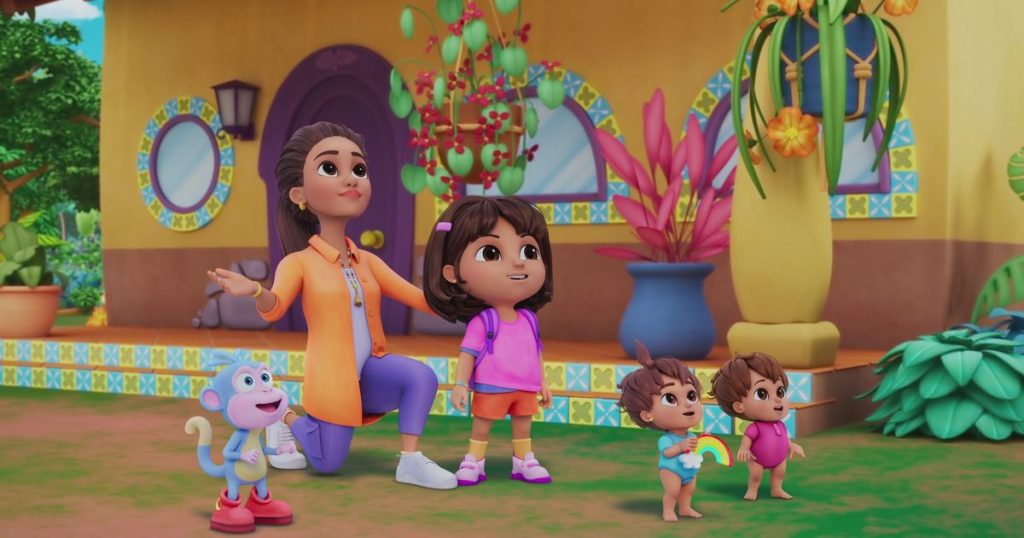Kathleen Herles, the original voice of Dora the Explorer, was cast in the iconic role at the age of 7 and worked on the pilot for over a year before the show premiered in August 2000. The show aired for eight seasons until August 2019, captivating children around the world with the adventures of Dora and her backpack-wearing best friend, Boots. Herles, a first-generation Peruvian American, found that voice acting was a huge learning experience for her and her parents, who had emigrated from Peru in their late teens. Despite having an inkling that the show might be successful, she could not have predicted the generation-wide impact she would have as the voice of Dora.
The global success of “Dora the Explorer” cannot be ignored, and Paramount+ has now introduced a revival series called “Dora,” featuring a new voice for Dora voiced by Diana Zermeno. Herles, now voicing Dora’s mother, Mami, in a full-circle moment, notes that while there will be differences in the upcoming reboot, there will also be similarities that will appeal to both older fans and a new generation of children. Herles recalls her experience working on the original show, from going to school full-time to recording lines for TV shows, toys, and video games. Her ability to slip back into Dora’s voice effortlessly showcases her dedication to maintaining the playfulness that makes animation enjoyable for everyone.
As one of the few Latina voice actors in the industry, Herles believes that “Dora the Explorer” was a turning point for children’s entertainment and Latino representation. She faced challenges and stigma surrounding her Latinx identity, both in terms of linguistic expectations and accent demands. Despite struggles with her own identity as a Latina without a perfect Spanish accent, she emphasizes the importance of not being typecast and embracing her diverse identity. Herles believes that Dora’s portrayal of a Latina character who speaks Spanish openly was revolutionary for children’s programming and paved the way for greater diversity and representation in the industry.
Speaking about her role as Dora and the impact it had on her own life, Herles reflects on how the character opened up new possibilities for her and inspired young viewers around the world. She recalls her favorite episode, “Dora’s Fairytale Adventure,” where Dora becomes a princess, highlighting the importance of representation in media for young audiences. Despite facing imposter syndrome and feeling out of place among seasoned actors, Herles acknowledges the importance of having a supportive community within the industry. This support has helped her overcome self-doubt and embrace her role in shaping the legacy of a character that means so much to so many.
Reflecting on Dora’s legacy and her own journey, Herles gets emotional thinking about the impact of the beloved character and the importance of being a part of something that has touched the lives of countless children. She acknowledges that Dora will always be a part of her, shaping her childhood and who she has become. Herles emphasizes the significance of her voice, no matter how small she may feel it is, and recognizes the importance of representation and diversity in the entertainment industry. As she continues to voice act and pursue her passion, Herles looks forward to the future with a sense of pride and gratitude for the opportunities she has had to make a difference through her work.


